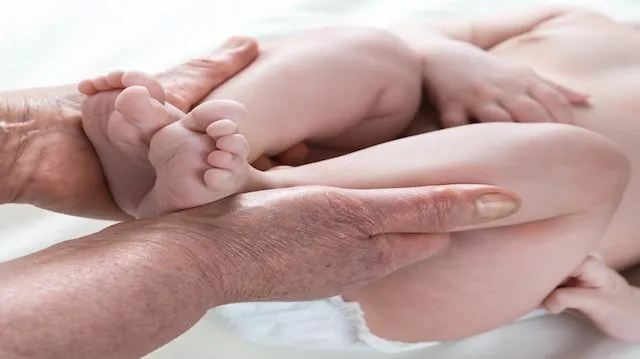
- Share on Facebook269
- Share on Pinterest
- Share on Twitter
Did you hear the one about the 72-year-old woman who gave birth? Yeah, it’s not a joke, but it feels like it should be. While struggling with infertility is a very real and very difficult part of many people’s lives, one has to question the judgment of the new, elderly parents and their fertility clinic for the sake of a baby who could be orphaned. It really comes down to the fact that just because you can do something doesn’t mean you should.
Daljinder Kaur is not exactly sure how old she is but knows she’s seven years younger than her husband who is 79. Call me crazy, but if you’re so old that you don’t know how old you are for sure, should you really be bringing a child into the world?
“We will raise him and give him a proper education,” Kaur told the Telegraph newspaper. “I had faith in Almighty that I will have my own baby, and Waheguru answered my prayers.” Waheguru is the Sikh term for God.
Video of the couple with their new bundle of joy is touching and super sweet, but they’re old enough to be the babe’s great-grandparents, so the question of how long they’ll actually be around to raise him is an important one.
The couple began undergoing fertility treatments at The National Fertility and Test Tube Baby Centre in Hisar, India, in 2013. After two failed IVF attempts, Kaur conceived last July. The center has come under fire before for encouraging older women to have babies, but this case takes the cake.
“We condemn this totally,” said Dr. Hrishikesh Pai, who serves as the head of India’s federation of gynecologists. “With science, you can make a 90-year-old person pregnant, what’s the big deal? The question is not about technicalities, it’s about ethics.”
Exactly!
Now, I don’t want to diminish the very real struggles that many people go through when they discover they have problems with fertility and want to conceive. It can be the most stressful experience of some people’s lives, and it’s far more common that most of us realize. As many as 6.7 million women in the U.S. are unable to have a child naturally. That’s 11 percent of reproductive-age women in the U.S. The WHO estimates that 186 million women of reproductive age — 15- to 49-years-old — maintain a “child wish.” This means that one in every four couples struggles with infertility.
But there’s more at stake here. This isn’t a case in which one parent is significantly older than the other, thereby increasing the chances that the child will have at least one parent around for a while. It also isn’t a case in which the child will have adult siblings to take care of him when they pass away.
No, this is a couple who are without any other children, who are elderly and far past what the WHO considers to be of reproductive age. They easily may not see this kid from elementary school. What is that going to do to their child? How is that going to affect his life?
We’ve reached the point in time when science can give us things that we only dreamed of previously. As Dr. Pai said, it’s not about the science and the fact that new technology allows us to do crazy cool stuff; it’s about ethics. It’s about right and wrong. In this case, it’s about what’s right for that newborn.
-Megan Winkler
Sources:
http://www.sfgate.com/news/article/72-year-old-becomes-first-time-mom-thanks-to-IVF-7444457.php
https://www.asrm.org/detail.aspx?id=2322
http://www.who.int/reproductivehealth/topics/infertility/burden/en
- Share on Facebook269
- Share on Pinterest
- Share on Twitter

